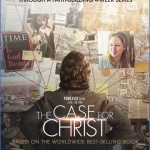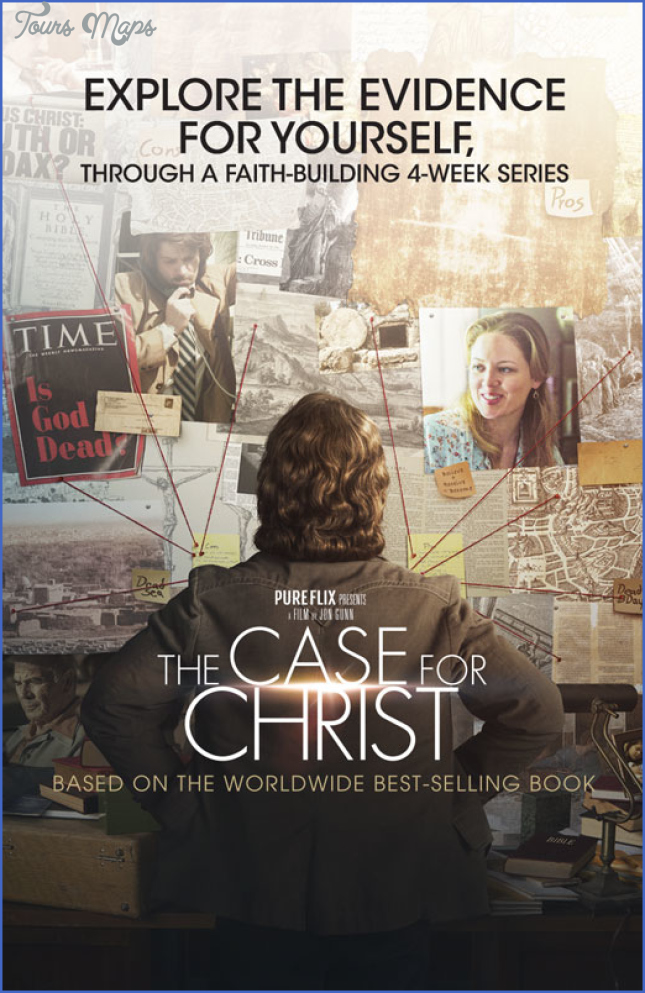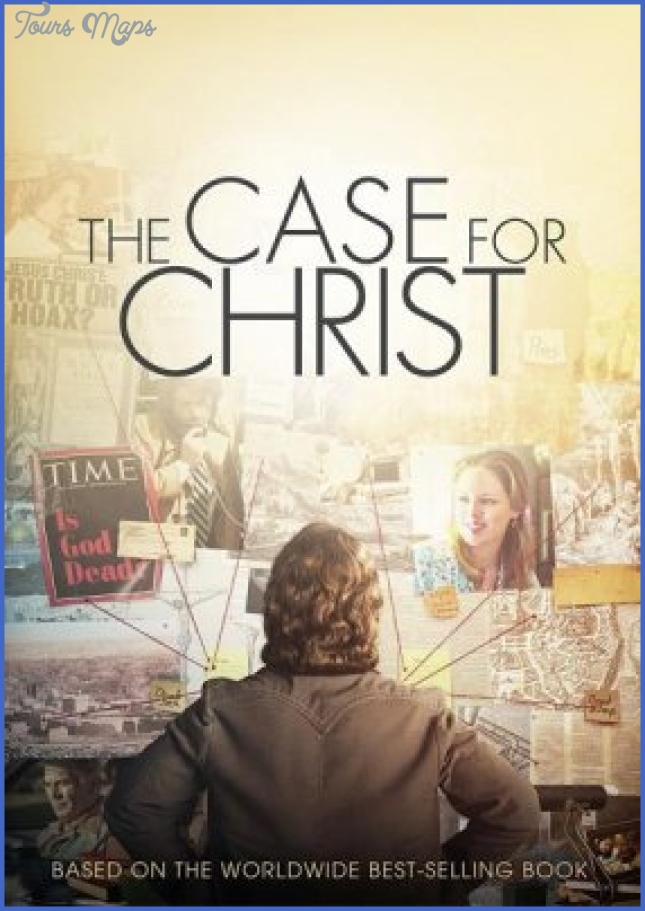IF Showcase Glasgow was an airport, it would be one of those used by budget airlines which is nowhere near the city it purports to serve. The multiplex cinema, a familiar landmark to regular users of the M8, sits on a leisure park on the outskirts of Coatbridge, nearly 10 miles east of Glasgow city centre. Presumably ‘Showcase Coatbridge’ was deemed not to have the same ring to it.
The Case for Christ Photo Gallery
On a pleasant Monday evening in September, the cinema (and the entire park) is so quiet that I wonder if I have come to the right place, and approach the doors half-expecting to find them locked. My fears are unfounded, but the deathly quiet reflects just how little buzz there is for a genuine novelty: an overtly Christian film playing at a mainstream UK cinema. The film in question is The Case for Christ, a dramatisation of the events that led to Lee Strobel’s book of the same name, a modern classic of populist apologetics.
I suppose we should be grateful that the cinema is screening it at all (Showcase is the only UK chain to have picked it up, and I’m attending one of only two showings at one of only two cinemas in Scotland to show it), but you have to question the value of a cinema release with so little effort put into publicising it. Christianity might be a hard sell in Britain these days, but surely churches from around the west of Scotland could have mobilised a decent audience, had they known the film was on? There isn’t so much as a poster on the outside of the cinema, and in the end I’m joined in the cinema’s smallest screen by about 10 other people. Anyway, despite the somewhat depressing surroundings, there is still excitement in seeing something so unapologetically Christian in mainstream surroundings – especially when it comes with all the trappings of a regular film trip (adverts, a PG certificate and, in my case, an overpriced ice cream) and the film features proper Hollywood production values and actual good actors I’ve seen before – including, unexpectedly, genuine film royalty – Faye Dunaway in a relatively minor role.
(Dunaway, who has been a Roman Catholic for years, is also listed as an executive producer.) The film is set in the late 1970s, which find Strobel (played by a magnificently coiffed and moustachioed Mike Vogel) as an award-winning, upwardly-mobile investigative journalist with the Chicago Tribune. The newspaper’s sceptical credentials are established by the poster on the office wall stating ‘If your mother says she loves you, check it out’: a clever touch which also reflects Strobel’s worldview and his troubled relationship with his parents. One evening, Strobel and his wife, Leslie (played by Erika Christensen) are out celebrating his promotion when their young daughter Alison chokes on a sweet, and is saved by a passing nurse, the saintly Alfie (L Scott Caldwell).
Alfie tells them that Jesus had told her to be at the restaurant that evening, which prompts Leslie to later seek her out, go with her to church and begin a journey of faith leading to her baptism. Appalled by this, Strobel decides to use his journalistic skills to debunk the resurrection (and, by extension, Christianity as a whole) by interrogating a series of experts theologian, archaeologist, psychologist, doctor – only to find his arguments being defeated at every turn. According to the real-life Strobel, the film is a broadly accurate portrayal of his journey from unbending atheism to ‘okay God, you win’. However, there is at least one major invention: ‘Alfie’ was actually Linda, and the choking incident was a less dramatic moment where they briefly lost Alison in a theme park. I know that ‘based on a true story’ covers a multitude of sins, but I find this slightly troubling in a film that is meant to be concerned with the search for the ultimate truth. I’ve also been unable to verify the thematically-convenient subplot, concerning Strobel’s investigation of a man who may or may not have shot a police officer (and, as one reviewer has pointed out, it’s uncomfortable to suggest that a young African-American has suffered wrongful imprisonment and beating to facilitate a white man’s conversion).
In the film’s defence, it is not sold as an in-depth rehearsal of the arguments in the book, which would be impossible anyway in Like us on Facebook at facebook.com/lifeandwork a two-hour running time. In reality, Strobel recounts speaking to 13 experts in The Case for Christ; here, there are just four, including Dunaway’s agnostic psychologist. If you want to engage with the debate in detail, you’ll have to read the book. Instead, the film is more interested in the Strobels’ emotional and psychological journey, particularly Lee’s reaction to Leslie’s new-found faith. His kneejerk response is to fear that he’s losing his wife, who used to say to him ‘you, and only you’, to religion.
He tells her that he’s thinking of filing a missing person’s report for her, that she’s ‘cheating on me with Jesus’. He also confides in a friend that ‘she’s different – that’s what scares me’. And in showing this, it emphasises that, for all Lee’s investigations, the final outcome is as much a response to Leslie’s unstinting love and an answer to her repeated prayer (from Ezekiel 11:19, asking God to ‘remove (Lee’s) heart of stone and give him a heart of flesh’). While the arguments might demolish some of the reasons for rejecting Christianity, the decision to embrace it is as much an emotional one as a logical one. Critical reaction to The Case for Christ has split along predictable lines: atheists don’t like it, Christians do (subject to any issues they have with Strobel’s theology). Although I know nothing is impossible with God, I find it hard to believe that anyone will be converted by the film itself, although it could be a starting point which could lead people to investigate the book, and then the faith more widely. Of course, for that to happen they’d have to see the film first. Maybe that’s where churches can come in.
Maybe You Like Them Too
- Top 10 Islands You Can Buy
- Top 10 Underrated Asian Cities 2023
- Top 10 Reasons Upsizing Will Be a Huge Travel Trend
- Top 10 Scuba Diving Destinations
- World’s 10 Best Places To Visit




